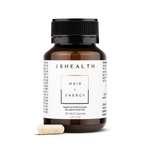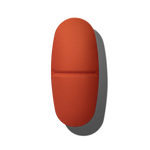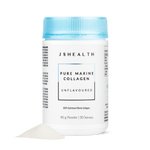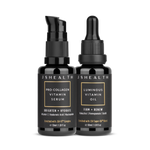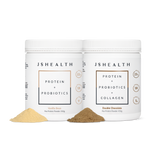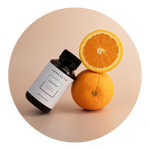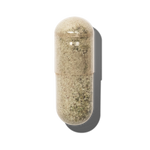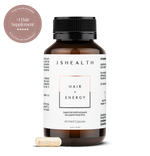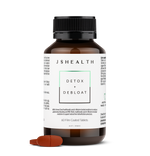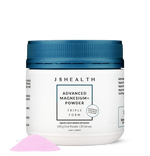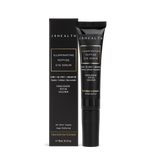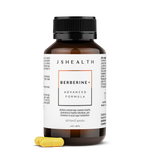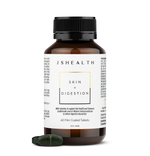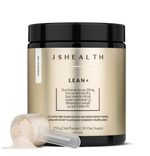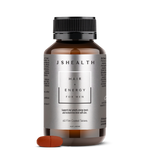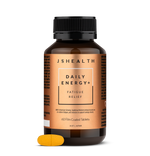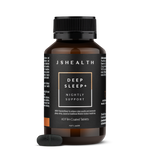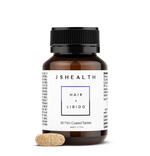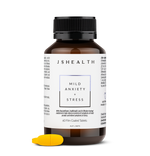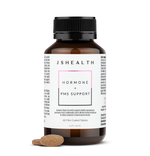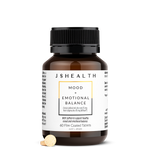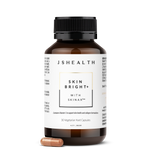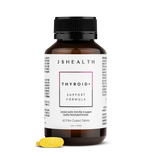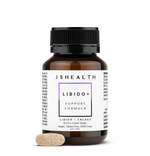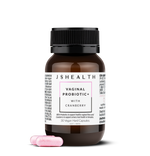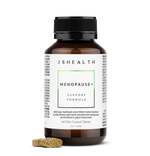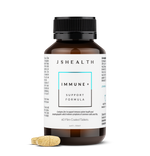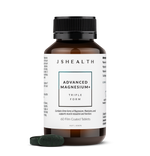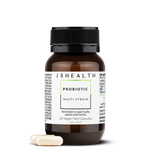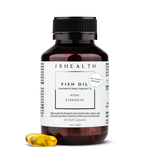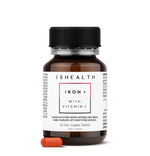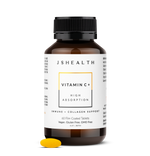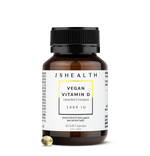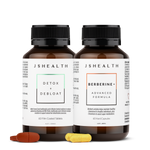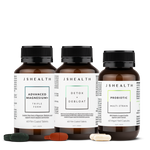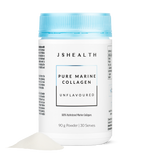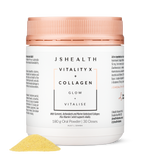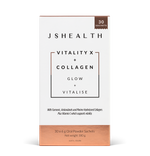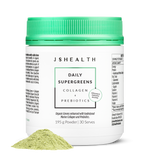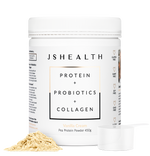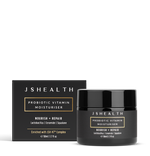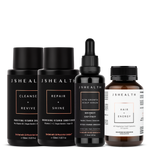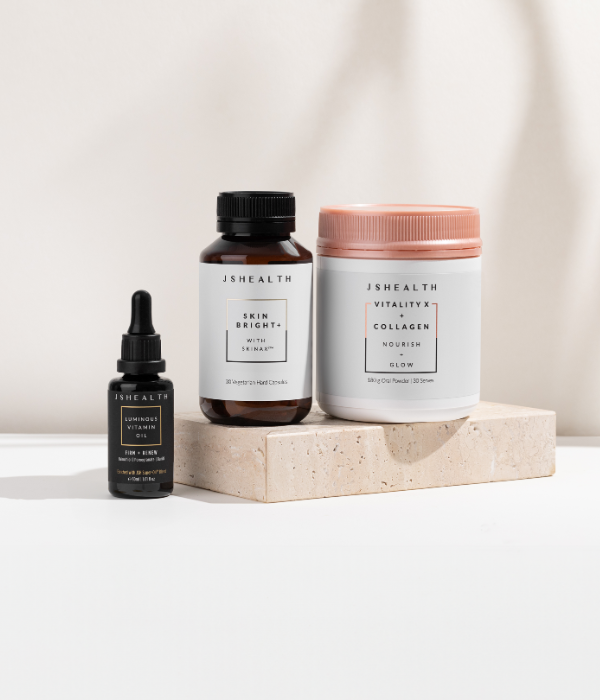Blood Health 101
When was the last time you thought about your blood health? It’s an often overlooked yet vital aspect of your wellbeing.
Our blood is made up of cells and plasma and plays a crucial role in transporting nutrients and oxygen throughout our bodies. It is a multitasking superhero - carrying white blood cells and antibodies to fight infections, forming blood clots to stop bleeding, carrying waste to the liver and kidneys and even helps to regulate our body temperature.
All these functions occur within our intricate circulatory system, which powers every aspect of our body and mind.
Understanding and supporting your blood health is key to overall wellbeing, especially considering that adults have anywhere from 5-7 litres of blood coursing through their body at any one time!
What is the circulatory system?
Our circulatory system is composed of the heart, blood vessels and blood.
This dynamic trio works together to ensure that every cell receives the vital nutrients it needs to function optimally. The heart pumps oxygen-rich blood through arteries, while veins return deoxygenated blood back to the heart. This continuous cycle not only nourishes our organs but also helps regulate temperature, pH levels, fluid balance and more.
What is blood comprised of?
Blood itself is composed of several key components, each with its own vital function.
- Red blood cells (RBCs) are responsible for transporting oxygen from the lungs to the body’s tissues and returning carbon dioxide for exhalation.
- White blood cells (WBCs) play a crucial role in the immune system, defending the body against infections and foreign invaders.
- Platelets are essential for blood clotting, helping to prevent excessive bleeding when injuries occur.
- Plasma, the liquid portion of blood, carries nutrients, hormones, and waste products, facilitating communication and transport throughout the body.
Together, these components work harmoniously to maintain overall health and support the functions of the circulatory system.
Key Nutrients for Supporting Blood Health
Most functions of the blood like waste removal and oxygen delivery operate automatically, thanks to the body’s intricate regulatory systems. However, we can always enhance and support our blood health by incorporating key nutrients into our diets.
1. Iron: Oxygen’s Carrier
Iron is fundamental for the production of haemoglobin, the protein in red blood cells responsible for transporting oxygen through our bodies. An iron deficiency can lead to fatigue and weakened immunity, due to lack of oxygen being transported.
You can incorporate iron-rich foods such as lean meats, leafy greens, legumes and fortified plant milks into your diet. If you struggle to get enough from food alone, a high-quality iron supplement can help boost your levels. Be sure to look for a formula that is also non-constipating and includes co-factors for absorption!
2. Vitamin B12: The Blood Builder
Vitamin B12 is vital for red blood cell formation and maintaining a healthy nervous system. Deficiencies can lead to anaemia or neurological issues. Foods such as fish, poultry, eggs and dairy are excellent sources of B12. For those following a plant-based diet, fortified foods or a B12 supplement can be essential for supporting blood health.
3. Folate: The Essential Nutrient
Folate (Vitamin B9) is crucial for DNA synthesis and red blood cell production. It’s particularly important during periods of growth, such as pregnancy. You can include folate-rich foods like dark leafy greens, beans or fortified grains in your meals. A daily folate supplement can also help ensure you meet your needs.
4. Vitamin C: Iron’s Best Friend
Vitamin C not only supports the immune system but also enhances iron absorption from plant-based sources and is vital for supporting our blood health. Aim to pair iron-rich foods with vitamin C sources like citrus fruits, strawberries or capsicums to significantly boost your body’s ability to absorb and utilise iron effectively.
5. Omega-3 Fatty Acids: The Heart Helpers
Omega-3 fatty acids play a critical role in blood health by reducing inflammation and supporting overall blood flow. Incorporate fatty fish (salmon), walnuts, flaxseeds and chia seeds into your diet, or consider a high-quality, sustainable omega-3 supplement to support your health.
6. Hydrate, Hydrate, Hydrate!
Staying hydrated is vital for maintaining healthy blood volume and circulation. Water helps to keep your blood at the right consistency, allowing it to flow smoothly through the vessels, which is often why we can get a headache when we’re dehydrated! Aim for at least 8 glasses of water a day, and more if you’re exercising.
Remember - the ‘Top 5’ for Blood Health
1. Incorporate Daily Movement
Regular exercise promotes healthy circulation and supports overall circulatory health. Aim for at least 30 minutes of activity each day, in a way that you love to move! The JSHealth App offers a range of movement videos for different fitness levels that you can do from the comfort of your home.
2. Manage Stress:
Chronic stress can negatively impact your circulatory system by placing additional pressure on the heart. Incorporate relaxation techniques such as meditation, yoga or deep belly breathing to help reduce stress levels.
3. Prioritise Sleep:
Quality sleep is essential for all areas of health. Aim for 7-9 hours of uninterrupted sleep each night to allow your body to recover and regenerate. Make sure your room is cool and calm - and that you spend dedicated time winding down (with screens off) before bed each night.
4. Avoid Smoking, Limit Alcohol:
Both smoking and excessive alcohol consumption can harm your circulatory system. If you smoke, seek support to quit, and enjoy alcohol in moderation (once a week).
5. Include Antioxidant-Rich Foods:
Foods high in antioxidants such as berries, dark chocolate and green tea, can help protect blood vessels and improve circulation. Antioxidants combat oxidative stress, which can damage blood cells and contribute to cardiovascular issues. Include 1-2 sources of antioxidants into your day and your blood will thank you!
